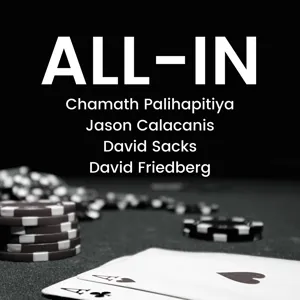Podcast Summary
Actor Ben McKenzie's Critique of Cryptocurrency: Actor Ben McKenzie, known for his role in 'The OC,' argues that cryptocurrency is a scam and even a form of fraud during industry downturns. His research and perspective, despite his background in show business, have gained attention and validated criticisms of the industry.
Actor Ben McKenzie, known for his role in the teen drama "The OC," has become a vocal critic of cryptocurrency. During a crypto industry downturn, McKenzie, who has written a book on the subject, argues that it's a scam and even a form of fraud. Despite his background in show business, McKenzie's research and perspective have gained attention, validating criticisms of the industry. As the crypto market faces challenges, McKenzie's book, "Easy Money: Cryptocurrency, Casino Capitalism, and the Golden Age of Fraud," provides insight into the skepticism surrounding the industry. The BBC, a NPR sponsor, encourages listeners to seek information and inspiration, while Certified Financial Planners remind us of the importance of trusted financial advice. Ben McKenzie's career began with a major role in "The OC," and his transformation into a crypto skeptic highlights the ongoing debate surrounding the legitimacy and risks of cryptocurrency.
Understanding Cryptocurrencies through an Economic Lens: Ben, an economics graduate and actor, explored the nature of cryptocurrencies and concluded they functioned more as investments or securities than traditional currencies, but their regulatory status as such remains unclear.
Ben's background in economics influenced his perspective on the nature of cryptocurrencies. While studying economics at the University of Virginia, Ben realized that money is only valuable due to the trust and agreement among people. After graduating and pursuing acting, Ben was introduced to cryptocurrencies during the pandemic when Bitcoin's price was surging. He revisited his economics education to understand if cryptocurrencies functioned as traditional currencies. However, he discovered that they lacked the basic functions of currencies, such as being a medium of exchange or a stable unit of account. Instead, Ben concluded that cryptocurrencies were more akin to investments or securities. Despite this, the regulatory status of cryptocurrencies as securities remains uncertain.
The Truth About Crypto: Reality vs. Hype: Despite the hype, only a small percentage of crypto investments are backed by real currency, with the rest being speculation.
The crypto market, which was being touted as a panacea for the financial system and the future of money, was in reality heavily speculative and only a small percentage of the investments were backed by real currency. During the height of the crypto hype in 2021, Ben, who had lost over $200,000 in crypto investments, teamed up with journalist Jacob Silverman to expose the truth. Through their investigative reporting, they revealed that celebrities endorsing crypto were misleading the public, and they interviewed industry insiders. One such interview was with Alex Mashinsky, the founder of a crypto lender called Celsius. When Ben asked Mashinsky about the real money backing crypto, he was surprised to get an honest answer: only 10-15% was real money, with the rest being speculation. Sadly, Celsius filed for bankruptcy just a few months after this interview, and Mashinsky was later charged with commodities fraud and securities manipulation. This episode highlights the importance of transparency and understanding the true nature of investments.
Interview with Sam Bankman Fried leaves concerns about crypto risks: Despite potential regulation, crypto's intangible value and lack of revenue make it risky for average investors, with recent events serving as reminders.
Despite the hype and impressive backgrounds of crypto industry leaders, the lack of tangible value and regulation in the crypto market can lead to potential harm for average investors. The interview with Sam Bankman Fried, who was once seen as the savior of crypto, left the interviewer unsatisfied and concerned. The collapse of FTX and the ongoing legal issues for its founder serve as a reminder of these risks. The potential entry of institutional investors, such as pension funds, into the crypto market through investment funds tracking Bitcoin's price, could expose more people to these risks. The author believes that classifying cryptos as securities and regulating them accordingly would help mitigate these risks, but there is resistance within the industry to such regulation. Cryptos, unlike traditional securities, don't produce revenue or have a tangible value, making them a challenge to regulate effectively.
Regulatory Developments and Their Impact on Crypto Market: Existing regulations, such as CFTC classifying Bitcoin as a commodity and recent court ruling on XRP being a security, significantly impact the crypto market. Staying informed about regulatory developments is crucial for those interested in crypto.
The regulatory landscape for cryptocurrencies like Bitcoin and other digital assets is still uncertain, with ongoing debates about whether new regulatory regimes are needed. However, existing regulations, such as the Commodity Futures Trading Commission (CFTC) classifying Bitcoin as a commodity in 2015 and a recent court ruling on XRP being considered a security, have significant impacts on the market. These regulatory developments highlight the importance of staying informed and the potential for significant price fluctuations. As for which "OC" character would be most likely to get into crypto, it's clear that Jimmy and Luke, with their questionable financial dealings, would be prime candidates. Meanwhile, the ongoing regulatory discussions and the potential implications for the crypto market keep industry experts like Ben busy. The industry remains in a state of flux, with new developments and debates emerging regularly. For those interested in crypto, staying informed and keeping a close eye on regulatory developments is essential. This episode was produced by Corey Bridges and engineered by Neil Rauch, with fact-checking by Sarah Juarez. Kiki Kenyon edited the show, and it was produced for NPR. Support for NPR comes from Saatva, offering luxury mattresses at affordable prices by selling online. Visit saatva.com/npr to learn more and save an additional $200.





